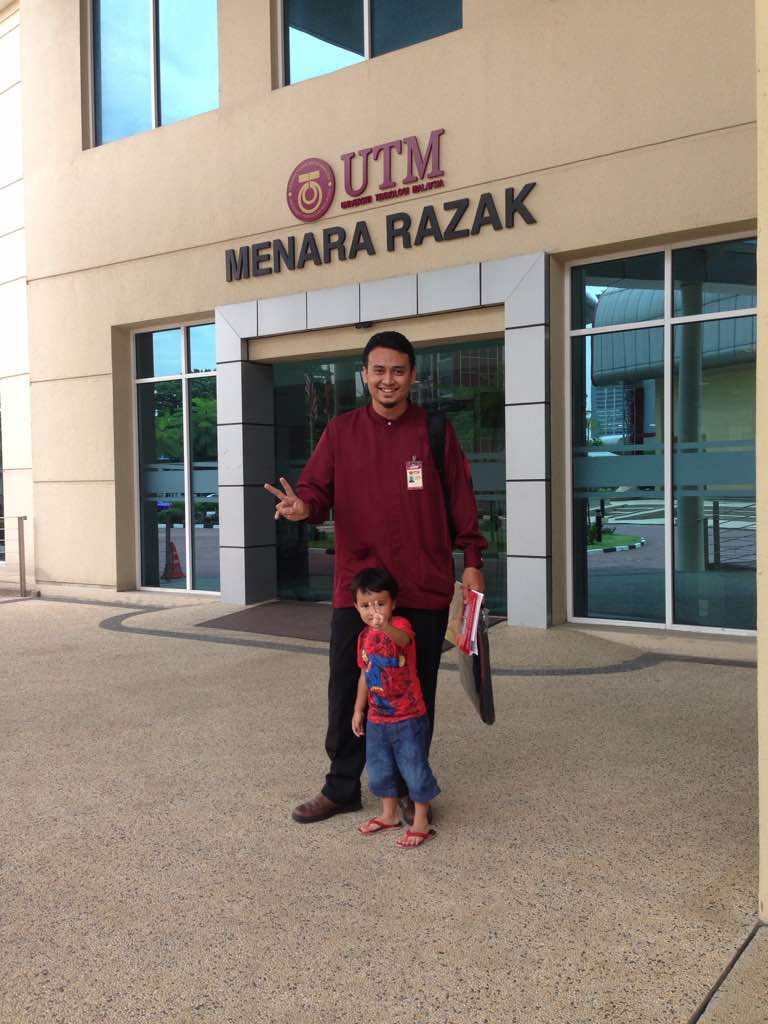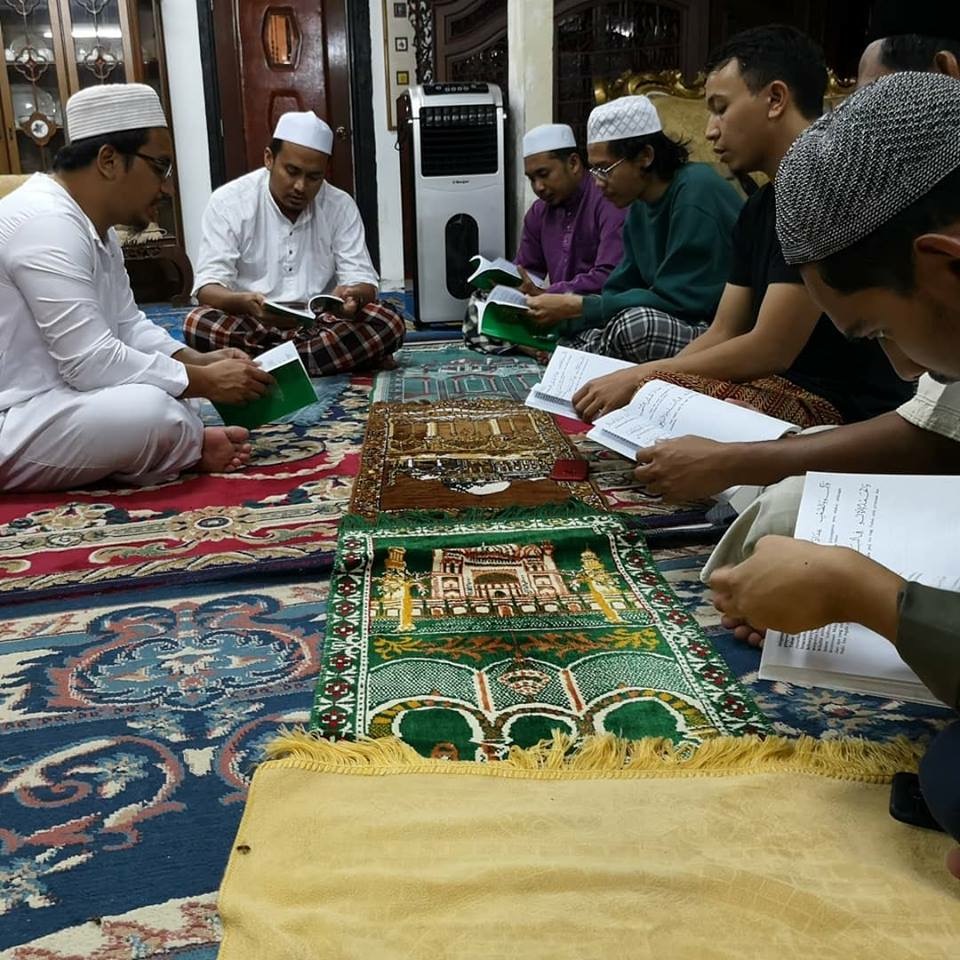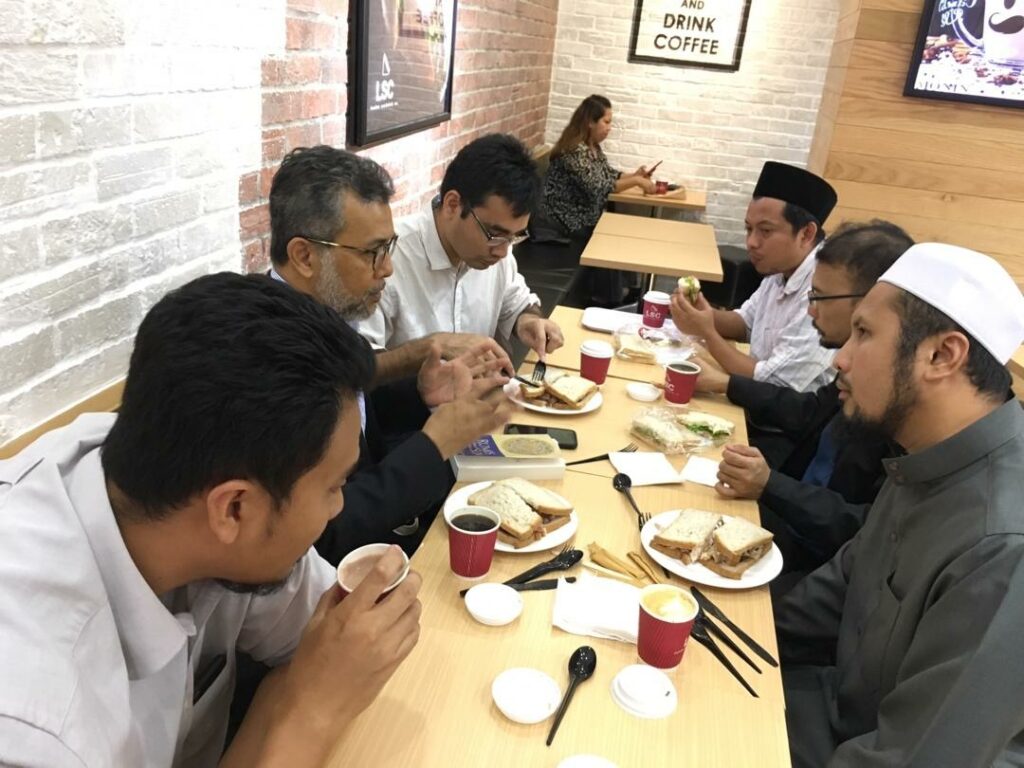by Akhrun Musa
MPhil at RZS-CASIS (2015-2019),
Asst. Mufti at Mufti’s Office of the Federal Territory
Worldview of Islamic Series (WISE) – 2014 organised by Himpunan Keilmuan Islam (HAKIM) was the beginning of my direct exposure to Syed Muhammad Naquib al-Attas’ ideas and thoughts, which I had previously only heard. The interesting ideas and excellent explanations by the lecturers throughout the six-month course persuaded me to formally enrol as a student at CASIS in order to expand my understanding of al-Attas’ thought.
This, I believe, is one of the most important decisions I’ve made in my life for the benefit of my knowledge journey. It is a journey in which I actually began to realize the purpose of pursuing knowledge and to experience the pleasure of knowing the reality and truth of things.
I was already employed as a government officer with the Department of Islamic Development Malaysia (JAKIM) at the time, and I intended to seek for leave to pursue my studies full-time. My plan to pursue full-time studies was not realised at the time, but I was given the opportunity to continue my studies part-time instead, thanks to the Public Service Department’s sponsorship (JPA).
There is no doubt that many people have successfully completed postgraduate studies on a part-time basis. Nonetheless, my experience at CASIS at the time increased my belief that there was no such thing as part-time study. Despite the fact that the study can be completed, it is extremely unfavourable and cannot guarantee the sweetness of seeking knowledge other than holding a roll of paper (degree).
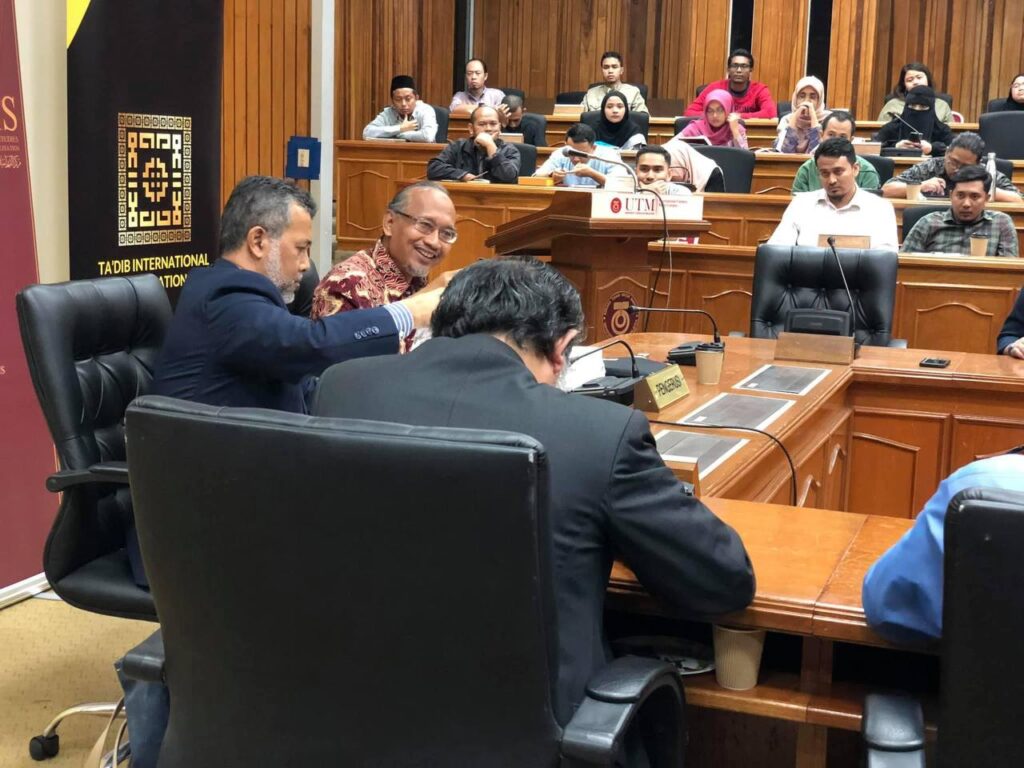
I frequently missed opportunities to participate more intensively in CASIS-organized programmes, and I have few opportunities to meet colleagues and teachers, which I believe are among the most important experiences to go through and enjoy in order to sharpen our thinking and understanding through what is known as ṣuḥbah (companionship).
This just reminds me of Sheikh al-ʼIslām Zakariyyā al-ʼAnṣārī in his “Al-Lu’lu’ al-Nazim fi Raum al-Ta’allum wa al-Ta’lim“. (Studded Pearls on Learning and Teaching) when he elaborated on the ‘pests’ (ʼāfāt) or the vices that prevent seekers of knowledge from (gaining) knowledge, he says;
“Among them (obstruction to knowledge), is due to holding certain positions. Indeed, the position is something that keeps the seekers of knowledge busy (with their work) and prevents them from devoting enough time to their studies.”
Meanwhile Imam Badr al-Din Ibn Jamaah al-Kinani’s emphasis in his book Tadhkirat al-Sāmiʿ wa al-Mutakallim fī Adab al-ʿālim wa al- Mutaʿallim (Etiquette of the Learner) on the necessityto remove all obstacles and focusing solely on seeking knowledge. He quoted one of the famous proverbs that said,
“Knowledge will not give you even a portion of itself until you completely give yourself to it.”
This provision, on the other hand, I see as God’s decree to test His servants’ ability to deal with His decree and, as a result, draw closer to Him.
Among the pearls of wisdom Prof. Wan Mohd Nor shared on CASIS Induction Day 2015, he said;
“…so please, when you come here, have some trust in your teacher. Even though some of the things we asked you to do may be difficult for you right now, we know they are beneficial for you. Because the challenges you will face will be far more challenging than the ones you are currently facing.”
“Fifty years ago, those who attacked Islam, the Quran, the Prophet PBUH, Shari’ah, those who put Allah in the wrong place, and so on, came from people who knew nothing about Islam; now, those who attack Islam come from those who master the sources of our religion, whether they were trained at a western or traditional Islamic university.”
Enjoying the Knowledge Culture
Apart from some university compulsory subjects like Research Methodology, and Philosophy of Science and Civilisation, we also need to take around 8-10 subjects introduced by CASIS like Worldview and Knowledge Framework, Decolonisation and Islamisation of Contemporary Knowledge, Islam and Political Thought, al-Qurʼan and Hadīth: Principles of Methodology and Contemporary Challenges, History and Methodology of Islamic Science and Technology, Islam in Malay History and Culture, Taṣawwuf in Islamic Tradition, Reading in Classical Text, Reading in Contemporary Text, Major Muslim Thinkers, Islamic Economic Thought and Institution and so on .
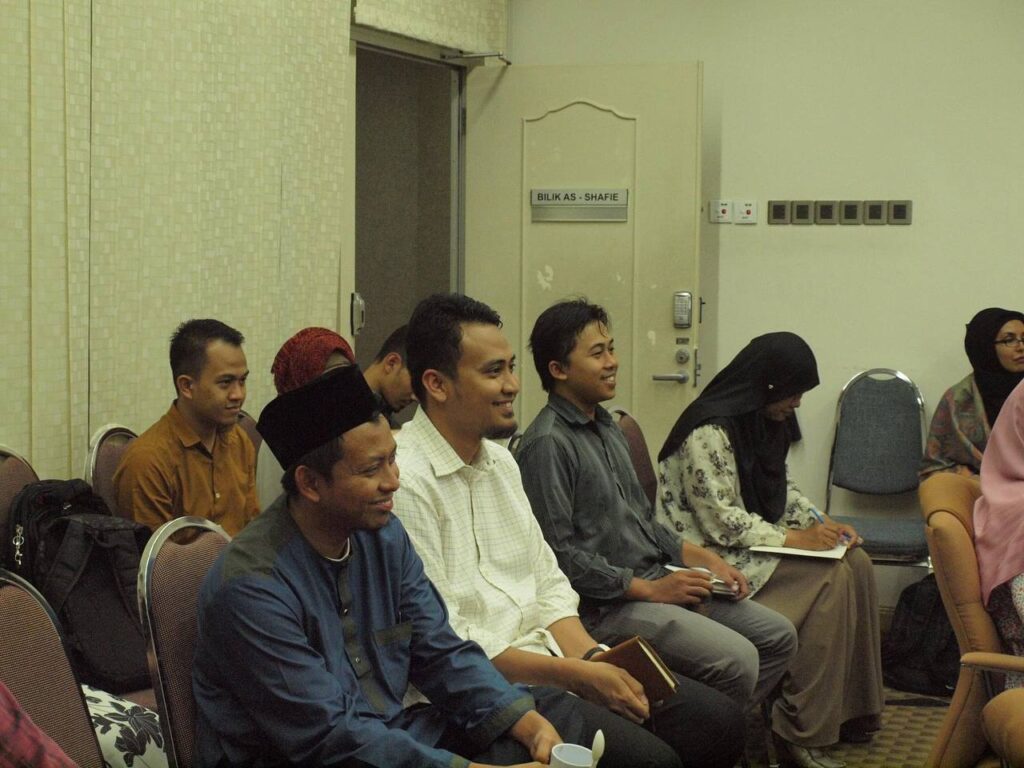
Despite the fact that it is not a compulsory subjects by the university but introduced by CASIS as an important prerequisite for all students who study here, the students approach the subjects with full responsibility and a thirst for knowledge.
Some of my colleague asked why I chose to continue my studies at CASIS, given that you must take a large number of subjects despite the fact that the mode of study is research mode. I told them that the goal of continuing the study is, without a doubt, to continue studying. So, we don’t whine about having to keep studying when we chose to do so in the first place.
One of the most significant advantages of studying at CASIS, in my opinion, is that, in addition to subjects designed to develop student’s mastery of the courses as well as their technical capabilities, we are exposed to the great thoughts and ideas of great scholars in the history of the Islamic scientific tradition.
It is through these subjects that we realise the distinctive level of spirituality as well as understanding of the religion of the earlier generations, which should continue to be acknowledge and studied.
I still remember the words by Assoc. Prof. Dr. Syamsuddin Arif during our al-Qurʼān and Sunnah subject. He displayed an image of an earlier Qurʼanic script from the time of the Prophet’s Companions, which lacked diacritical marks to identify letters and vowel symbols, and he said:
“Now take a look! This is the difference between them (the Prophet’s companions and earlier generations) and you. Although the writing is unclear, they themselves are clear (so that they are able to read and understand it well). But now you must make everything clear because everyone is ‘unclear’.”
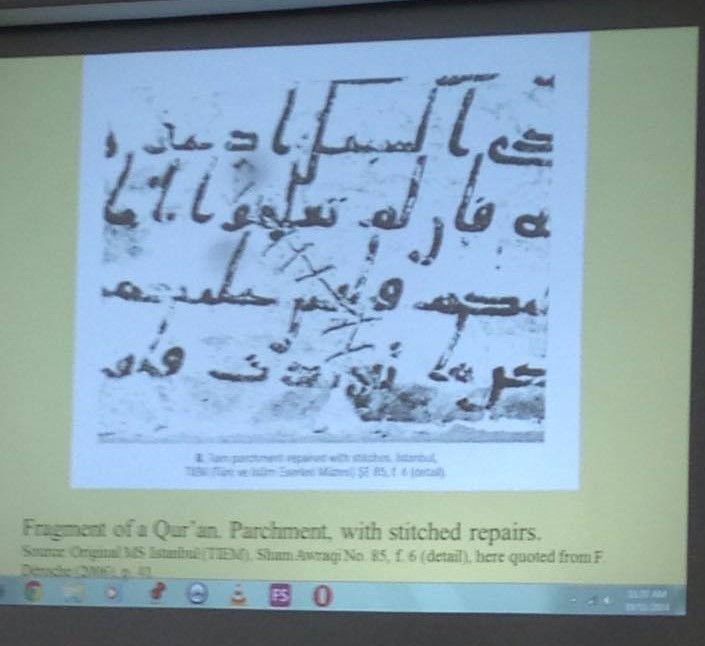
That must have been painful, but we regarded it as irrefutable truth.
These classes also taught me that Islamic sciences are the most serious and difficult to pursue, needing a high level of ability and sincerity. I’ll never forget how we struggled in class to read Arabic text correctly and translate it spontaneously into English. Dr. Syamsuddin Arif said;
“You see! Islamic studies are not for the faint of heart. That is why you must send the most intelligent of your sons to pursue religious sciences, not the less intelligent ones!”
Re-Learning Process at CASIS
At CASIS, I clearly went through a re-learning process. I was surprised because I had to start with basic Arabic and introductory subjects like Sharīʿah, ʿAqīdah, and al-Qurʼān and Sunnah, which is actually my specialisation during my Bachelor’s degree. However, I don’t see all of this as a burden; rather, as a sweetness that I missed during my bachelor’s studies. When I think about it, perhaps this is what Prof. Al-Attas meant when he said that scholars, in particular, need to go through a re-learning process based on the Worldview of Islam.
Some classes took place in the evenings or on weekends. It is physically tough to commute to UTM KL after work, whether from the office or from home. However, each time I listened to the lecture, I am refreshed by new “sparks” of knowledge, and my physical exhaustion is forgotten in the satisfaction of my soul.
That was the routine that I went through until my graduation around 2019 and a master’s thesis entitled Tolerance (al-Musāmaḥah) in al-Ghazali’s Ethical Thought was successfully completed under the supervision of Assoc. Prof. Dr. Wan Suhaimi Wan Abdullah. For that I am very indebted to Dr. Wan Suhaimi who is patient and very much tolerant of my shortcomings and makes every effort to make his schedule as flexible as possible so that I may always meet with him whenever I need to.
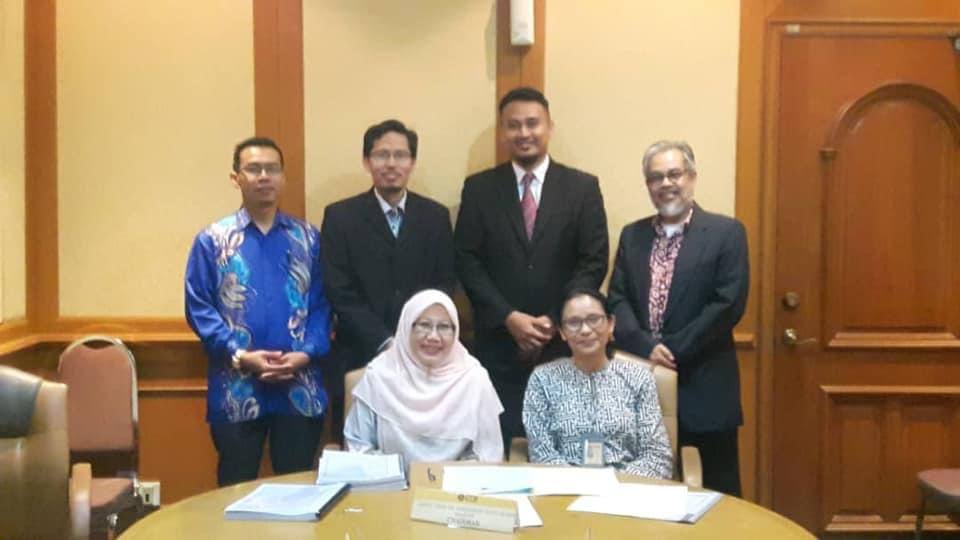
Since my first day at CASIS till today, I, like most other CASIS alumni, have never missed a single semester without enrolling in at least one subject. Not to mention the additional classes and lectures by CASIS teachers with the general public on a weekly basis, such as the CASIS Saturday Night Lecture (SNL) by Prof. Wan Mohd Nor Wan Daud himself, book readings with Assoc. Prof. Dr. Wan Suhaimi Wan Abdullah, series of intellectual webinars and so on.
In short, even if you are not a full-time student (enrolled in a university), becoming a CASIS-ian will keep you occupied with intellectual discourse, and I feel it is hard to have other interests and passions besides studying and preparing your future writing.
As of the date this personal reflection is written, I have already received notification my sponsorship application through Hadiah Latihan Persekutuan (HLP) under the Public Service Department (JPA) was successful. It is the most awaited piece of good news because it means I will begin full-time PhD studies in 2022, if God wills.
One of the most common questions I received from friends and colleagues is where I intend to pursue my doctorate. What else can be said?
As it turns out, the knowledge culture at CASIS has captivated me in a way that I believe is difficult to find elsewhere. Though one of our teachers used to say that what they could do at CASIS was only a fraction of what they had at ISTAC during Prof. al-Attas’ tenure, but we remain grateful for what we enjoy now.
There will undoubtedly be many more sweet experiences that will be preserved just for my personal memories.
Finally, may CASIS prosper in producing sincere, yet respectable scholars, under the guidance of true scholars who continue to guide relentlessly, and only God can reward their efforts.
Akhrun bin Musa earned his Bachelor’s Degree in al-Qurʼān and Sunnah from International Islamic University Malaysia (IIUM) in 2005 and a Master’s Degree in Philosophy and Islamic Thought from Raja Zarith Sofiah Centre for Advanced Studies on Islam, Science and Civilisation (RZS CASIS), Universiti Teknologi Malaysia (UTM) in 2019. He is currently serves as an Assistant Mufti at the Mufti’s Office of the Federal Territory.

